Can You Use Aspirin Paste For Piercing Bumps?
Piercing bumps are painful, but tread carefully before you use at-home remedies for relief.
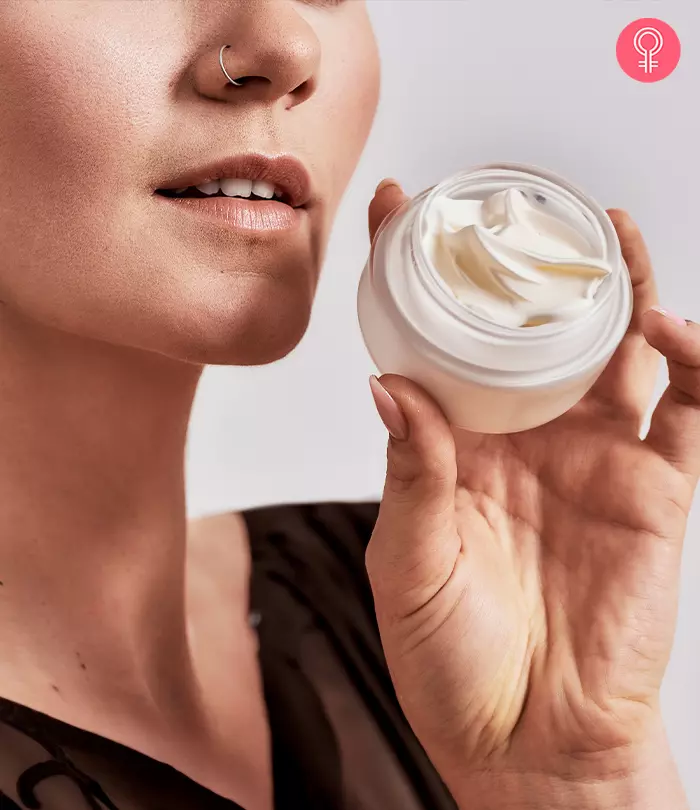
Image: StyleCraze Design Team
It is not uncommon for people to get piercing bumps. They can be frustrating to deal with, leading people to seek out quick fixes and home remedies. One such DIY solution that has garnered attention is using aspirin paste for piercing bumps. Although the proponents of this remedy swear by its anti-inflammatory properties and healing abilities, there is no strong scientific evidence supporting its effectiveness. Moreover, aspirin paste has several potential risks and may damage the skin. This article aims to provide clarity on the safety concerns associated with aspirin paste and understand why people use it as a quick fix for their piercing bumps. Keep scrolling.
In This Article
Why Is Aspirin Paste Used For Piercing Bumps?
Though there is no scientific evidence that supports the use of aspirin paste, people have been using it to treat piercing bumps, especially keloid scars or hypertrophic scars, for many years. Anecdotal evidence suggests that applying crushed aspirin may have a drying effect on the piercing wound, which is believed to help reduce the bump.
Aspirin is also known as acetylsalicylic acid, a salicylic acid derivative known for its anti-inflammatory effects (1). When taken orally, it works by decreasing prostaglandin production (a substance responsible for causing swelling and redness), thus lowering inflammation and pain (2),(3),(4). While a few studies found that applying crushed aspirin may have pain-relieving effects when used for conditions such as postherpetic neuralgia (a common complication of shingles), there is a lack of evidence as to whether the same will work on piercing bumps (3),(5).
Even if it is related to salicylic acid, a popular OTC treatment for acne, acetylsalicylic acid does not have the same effect. Moreover, just like any other DIY treatment, the risks of applying aspirin on your skin and piercing bumps are greater. Check out the next section for more information.
Key Takeaways
- Aspirin is a salicylic acid derivative which relieves pain by reducing prostaglandin production.
- Although crushing Aspirin tablets and applying its paste on the affected area is found to be efficacious in certain conditions, there is no evidence to suggest it works on piercing bumps.
- It is best to consult with a healthcare provider to understand how long to leave it on a bump in case you decide to use it.
- You may also try some home remedies such as tea tree oil or shrinking drops to treat piercing bumps. However, caution is advised as essential oils may cause allergic reactions in some individuals.
Is It Safe To Use Aspirin Paste On Piercing Bumps?
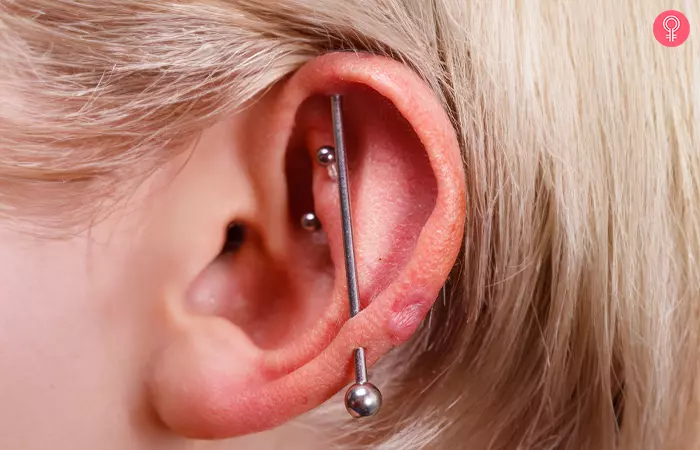
Experts do not recommend using aspirin paste for piercing bumps due to the reasons listed below:
- Some individuals may be allergic or sensitive to aspirin. Applying aspirin paste may lead to allergic reactions such as redness and itching.
- Aspirin paste may irritate the skin, especially if it is left on the skin for a long time, and cause dryness, peeling, and irritation. It may worsen the piercing bump and even damage the surrounding skin.
- Aspirin may lead to chemical burns if they are applied directly to certain areas (6).
Therefore, it is important to consult a medical professional before applying aspirin paste or any other home treatment on a piercing bump. They can evaluate the bump and offer suggestions for the best course of action.
Despite these risks, if you still go ahead with this remedy, do a patch test to check for any negative reactions. Check out the next section to learn how to prepare aspirin paste.
How To Prepare Aspirin Paste For Piercing Bumps
Although it is not recommended to use crushed aspirin tablets for piercing bumps, some may still want to try it. In that case, they can follow the steps below:
- Wash Your Hands: Before handling any materials or touching your piercing, thoroughly wash your hands with soap and water to prevent introducing any bacteria to it.
- Prepare A Clean Surface: Lay out a clean towel or paper towel on a flat surface to create a clean workspace. Make sure the surface is free from any dirt or debris to avoid contamination.
- Crush The Aspirin Tablets: Take the required number of aspirin tablets and crush them into a fine powder using a clean mortar and pestle or the back of a spoon.
- Add Water: Gradually add a small amount of hot water to the crushed aspirin powder, stirring continuously until you achieve a thick, paste-like consistency. Ensure that the water is clean to prevent contamination.
- Clean The Piercing: Gently clean the area around the piercing with a saline solution or warm water and mild soap. Pat it dry with a clean paper towel.
- Apply The Aspirin Paste: Using a cotton swab or your fingers, apply a thin layer of the aspirin paste directly onto the bump or affected area of the piercing. Be careful not to apply too much pressure or disturb the piercing.
- Leave It On For A Short Period: Allow the aspirin paste to sit on the piercing bump for about 10-15 minutes. During this time, it may help to cover the area with a clean bandage or sterile gauze to prevent the paste from drying out.
- Rinse Thoroughly: After the designated time has passed, gently rinse the area with warm water to remove the aspirin paste completely. Pat the area dry with a clean paper towel.
 Quick tip
Quick tipEven if you decide to go ahead and use aspirin paste on a piercing bump, it is important to how long to leave it on it. The next section reveals that.
How Long Should Aspirin Paste Be Applied On A Piercing?
The amount of time aspirin paste should be applied to a piercing may vary based on several factors, including the bump’s size, the area’s sensitivity, etc. Leaving it for too long or applying it frequently can dry out your skin. You can use the following points as a general guideline:
- It is generally recommended to apply aspirin paste to a piercing for approximately 10 to 15 minutes per session.
- You can use aspirin paste once a day, but it is essential to follow the guidance of a professional and not overdo it.
- Examine how your skin responds to the aspirin paste during the application period. Remove the paste right away and give the region a thorough rinsing if you experience any irritation or discomfort.
- Seek guidance from a healthcare provider before applying aspirin paste on piercing bumps.
Note:
Remember that every individual’s body and piercing situation are unique, so what works for one person may not suit another. When in doubt, always put safety first and seek professional advice.
In addition to aspirin paste, there are also some other options one can consider. Scroll down to find out what they are.
Other Treatments For Piercing Bumps
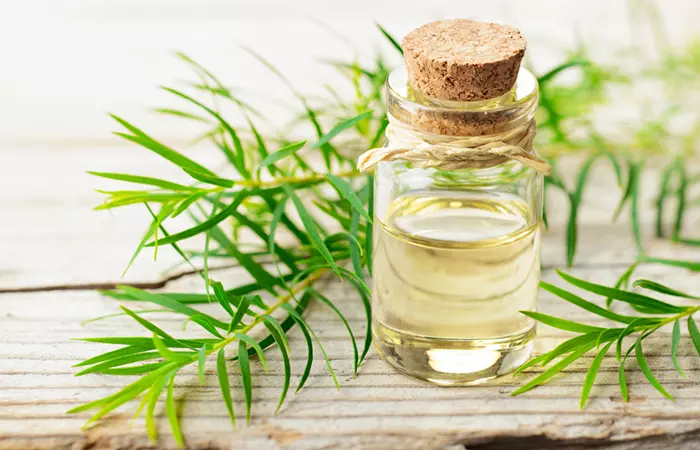
Though it is important to exercise caution and see a professional before attempting any home remedies, there are several different therapies that individuals use for piercing bumps. Some of them are mentioned below:
- Tea Tree Oil
Tea tree oil’s antibacterial, antimicrobial, and anti-inflammatory properties may help treat piercing bumps and accelerate the healing process (7). It is important to remember that tea tree oil is strong and reacts differently on all skin types. Since tea tree oil can be irritating when applied topically, dilute it appropriately before using it on the skin. Mix 1-2 drops of tea tree oil with a tablespoon of any carrier oil, such as coconut or olive oil. Use a cotton ball or swab to dab the area around the pierced bump with a tiny amount of the oil blend.
- Shrinking Drops
Pure essential oils including grapeseed oil, tea tree oil, lavender, and rosemary are used to create shrinking drops. It is recommended that you massage the area surrounding the piercing bump after applying a drop of the solution there. Use a drop on the wound two or three times per day until it heals. In addition, carefully follow the directions that come with the product, and stop using it if you have any negative side effects.
- Sea Salt Soak
Soaking the piercing area in a sea salt solution may help cleanse the area and promote healing. To make a sea salt solution, mix about 1/4 teaspoons of non-iodized sea salt with 8 ounces of warm water. The solution should be fully absorbed by a cotton ball. After a few minutes of gently holding the cotton ball over the piercing, wipe the area with a dry paper towel. Continue doing this twice a day or until you notice a noticeable change in the size of your piercing bump.
 Pro tip
Pro tipA blogger who writes as smajoyful tried tea tree oil for her piercing bump and shared her experience in her personal blog. She writes, “Dab a bit of tea tree oil with a cotton swab around the piercing hole about 4 times a week. For some skin types, tea tree oil is considered strong so you can also mix the oil with water. Do not rinse the oil off. For myself, this solution helped reduce the bump in the beginning but after a while, the bump remained and returned to its previous size (i).”
Note: It is essential to gently clean the piercing with a saline solution or mild soap and water before attempting any of these treatments. In addition, consult a medical practitioner or a trained piercer for medical advice if you encounter severe or recurring symptoms, such as extreme pain, swelling, or discharge.
While we have suggested how you can deal with a piercing bump using aspirin paste as well as other remedies, it is important to understand these bumps can be avoided in the first place. Simply following basic piercing aftercare tips can help prevent possible infections that can lead to piercing bumps. Scroll down to learn in detail.
Aftercare Tips To Avoid Piercing Bumps
Here are some simple aftercare tips that you can help manage a fresh piercing and ensure its smooth healing. These steps can also reduce the risk of infections or allergies that can lead to piercing bumps.
- Clean your piercing site twice daily with saline solution to prevent infection.
- Avoid touching or twisting the jewelry to minimize irritation.
- Keep the area dry and avoid swimming in pools or hot tubs during healing.
- Stick to hypoallergenic jewelry, especially in the early stages of healing.
- Avoid applying makeup, perfume, or strong lotions near the piercing to reduce the risk of contamination and irritation.
Although aspirin paste’s purported anti-inflammatory qualities make it seem like a practical treatment for piercing bumps, enough scientific evidence to support its effectiveness is lacking. Using aspirin paste on piercing bumps poses potential risks, including dryness, peeling, chemical burns, and allergic reactions. Therefore, it is advisable to proceed with caution and get help from a professional piercer or healthcare expert to manage piercing bumps effectively and safely. Also, follow proper aftercare practices, maintain proper hygiene to avoid piercing bumps, and ensure proper healing.
Infographic: Tips To Keep In Mind When Using Aspirin For Piercing Bumps
If you have just noticed a piercing bump, fret not! Piercing bumps can occur even after meticulous aftercare. If you are considering using aspirin to reduce inflammation and irritation, it’s important to be aware of the risks. Check out the infographic to learn about the precautions to take and safe alternative treatments.
Some thing wrong with infographic shortcode. please verify shortcode syntaxFrequently Asked Questions
Is aspirin paste a long-term solution for piercing bumps?
Aspirin paste may provide temporary relief for irritation bumps, but it is not a proven long-term solution. Consult a reputable piercer or dermatologist for personalized treatment options.
Are there risks associated with using aspirin paste for piercings?
Yes, If you are allergic to NSAIDs, using aspirin may cause allergic reactions and may exacerbate asthma, rhinitis, and other issues. Moreover, topical aspirin paste may cause chemical burns if applied in high concentrations (3),(6).
Can aspirin be used for a nose-piercing bump?
There is no research to indicate that aspirin can heal a nose-piercing bump entirely. It can only reduce the swelling and relieve the pain slightly. However, it is best to consult with an experienced piercer or a healthcare provider for a proper assessment and guidance on how to address it.
Several people swear by using aspirin paste for piercing bumps, while others do not think it is a good idea. Click on this video to gain another perspective on the controversial remedy.
Personal Experience: Source
StyleCraze's articles are interwoven with authentic personal narratives that provide depth and resonance to our content. Below are the sources of the personal accounts referenced in this article.
(i) How To Remove A Piercing Bump
https://glamorousgamergirls.wordpress.com/2012/08/20/how-to-remove-a-piercing-bump/
References
Articles on StyleCraze are backed by verified information from peer-reviewed and academic research papers, reputed organizations, research institutions, and medical associations to ensure accuracy and relevance. Read our editorial policy to learn more.
- Salicylic acid (aspirin)
https://www.ncbi.nlm.nih.gov/books/NBK519032/ - The mechanism of action of aspirin
https://pubmed.ncbi.nlm.nih.gov/14592543/ - Aspirin in dermatology: Revisited
https://www.ncbi.nlm.nih.gov/pmc/articles/PMC4693360/ - Pro- and anti-inflammatory prostaglandins and cytokines in humans: A mini review
https://www.ncbi.nlm.nih.gov/pmc/articles/PMC10253712/ - A randomized parallel trial of topical aspirin-moisturizer solution vs. oral aspirin for acute herpetic neuralgia
https://pubmed.ncbi.nlm.nih.gov/11703529/ - Chemical burn from direct application of aspirin onto a painful tooth
https://journals.lww.com/senj/fulltext/2025/10010/chemical_burn_from_direct_application_of_aspirin.12.aspx - Tea tree oil: Properties and the therapeutic approach to acne—a review
https://www.ncbi.nlm.nih.gov/pmc/articles/PMC10295805/
Read full bio of Eve Phillips
Read full bio of Vaishali Sinha
Read full bio of Subhrojyoti Mukherjee
Read full bio of Shreya Mukherjee







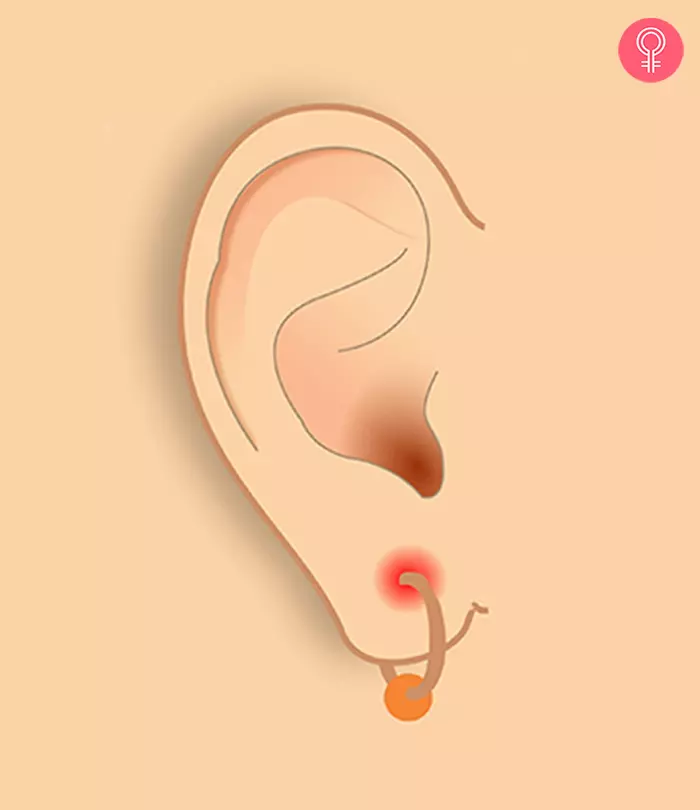
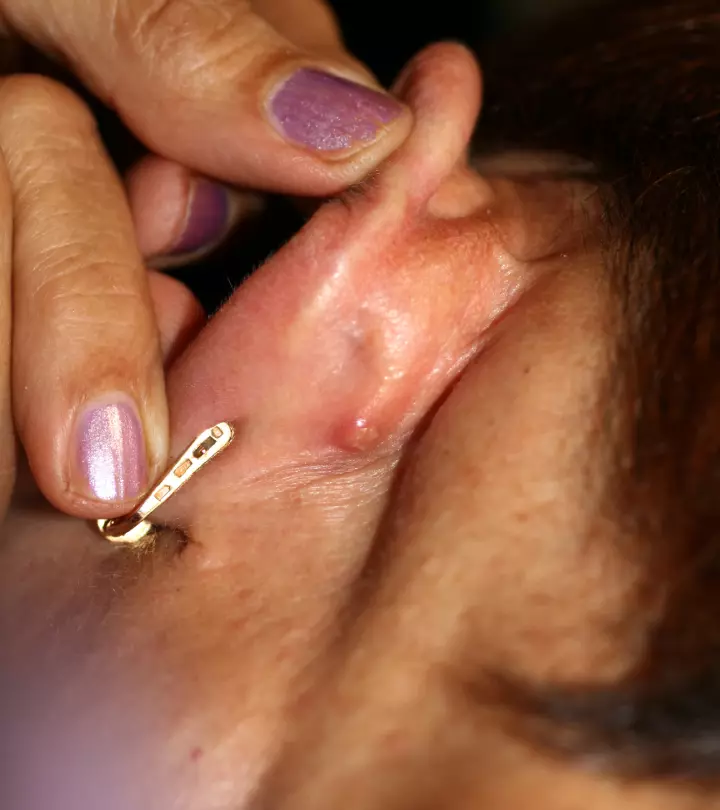
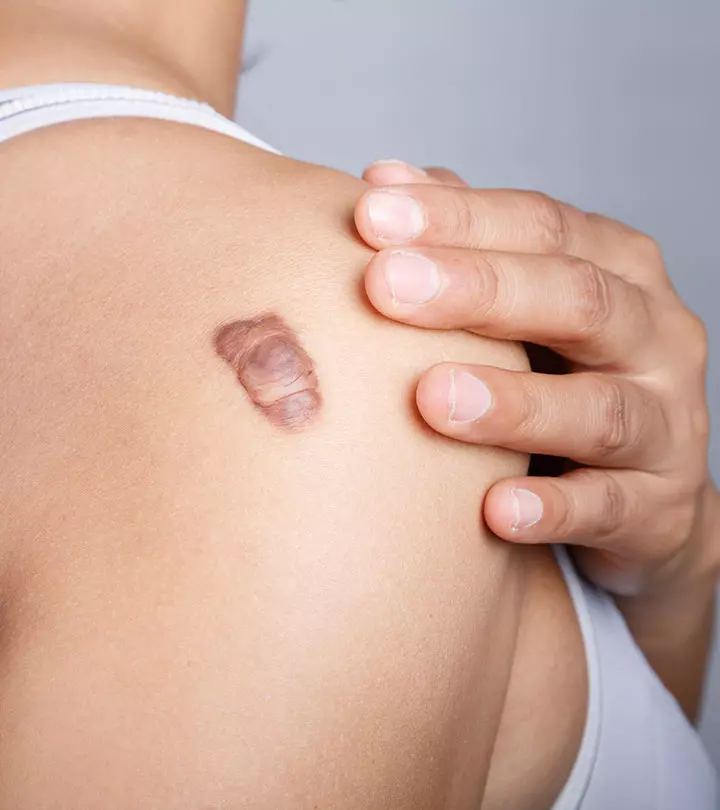
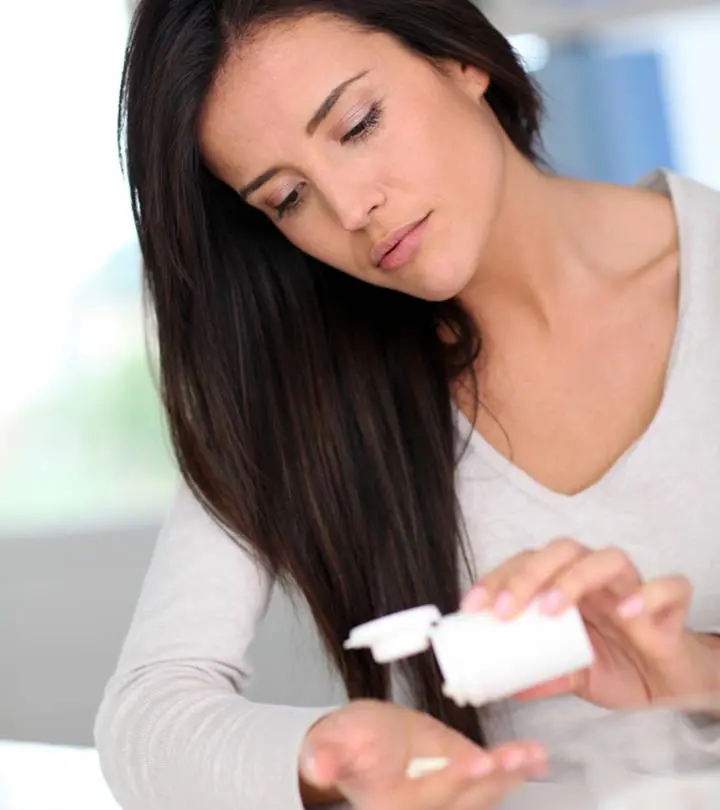
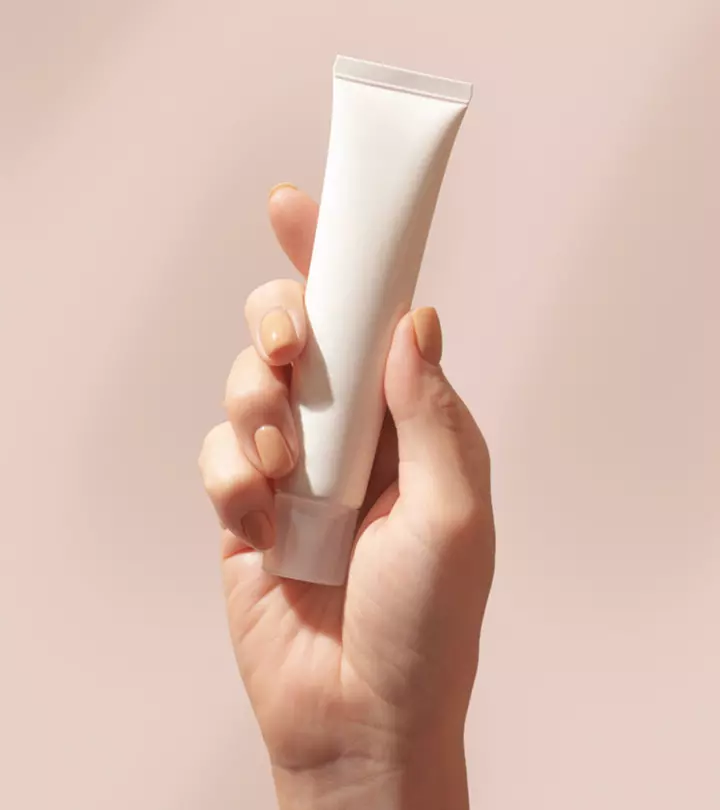
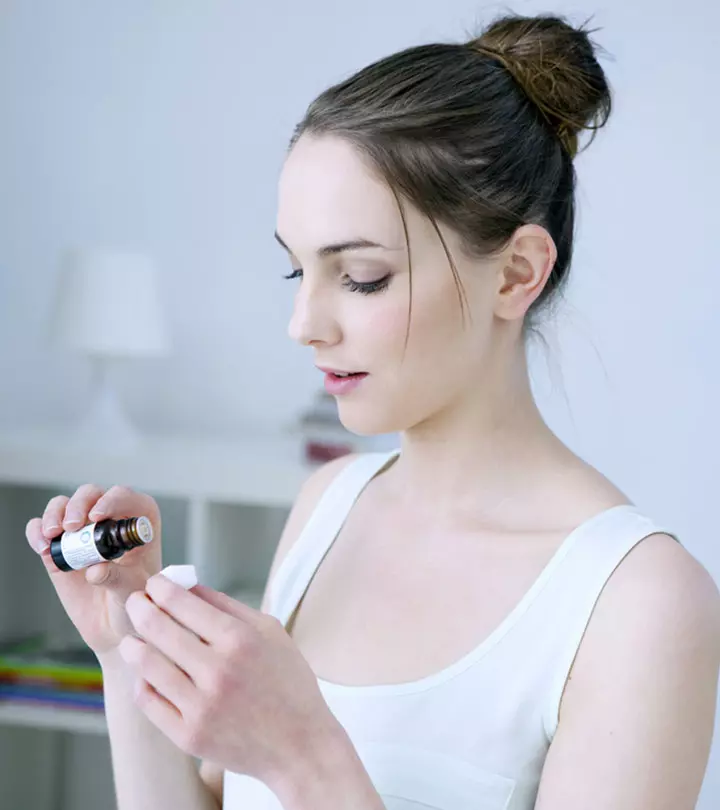
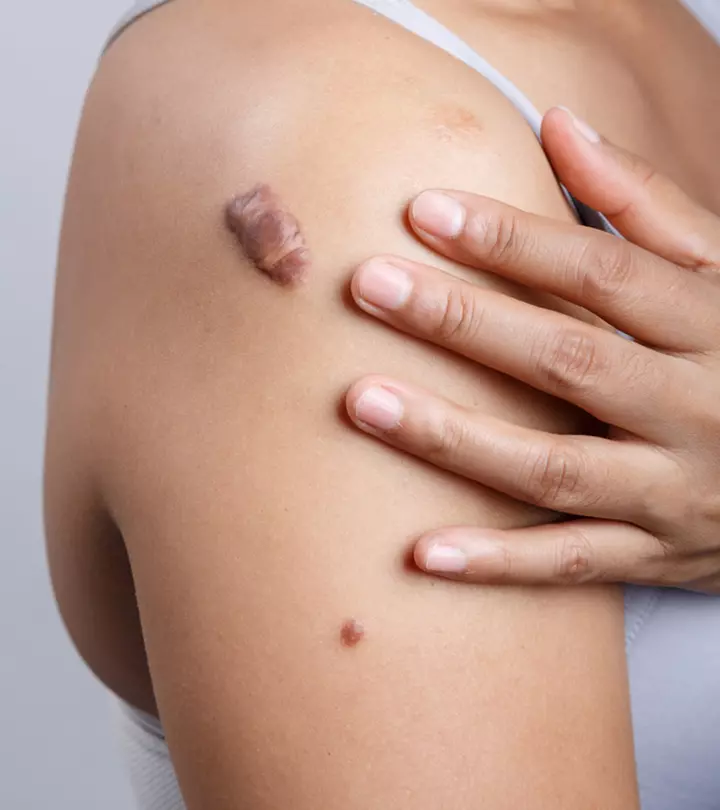
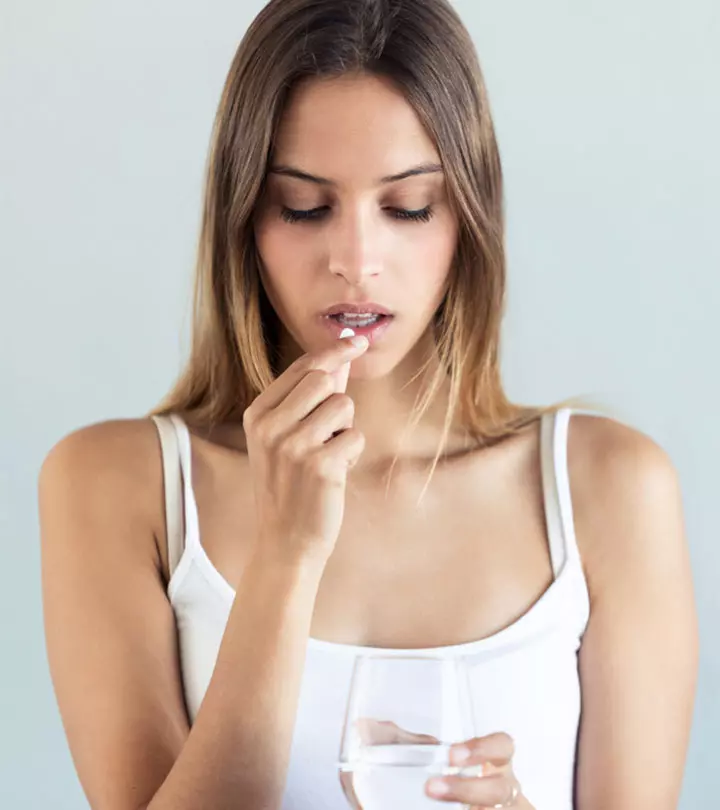


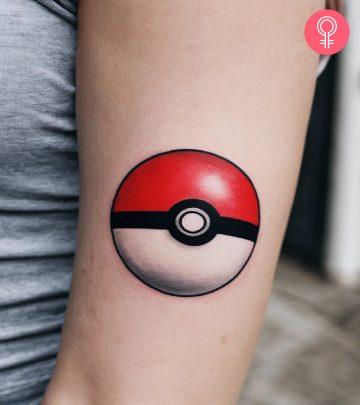





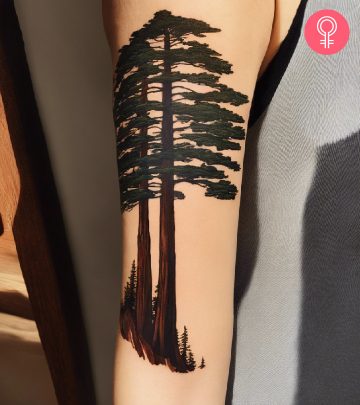
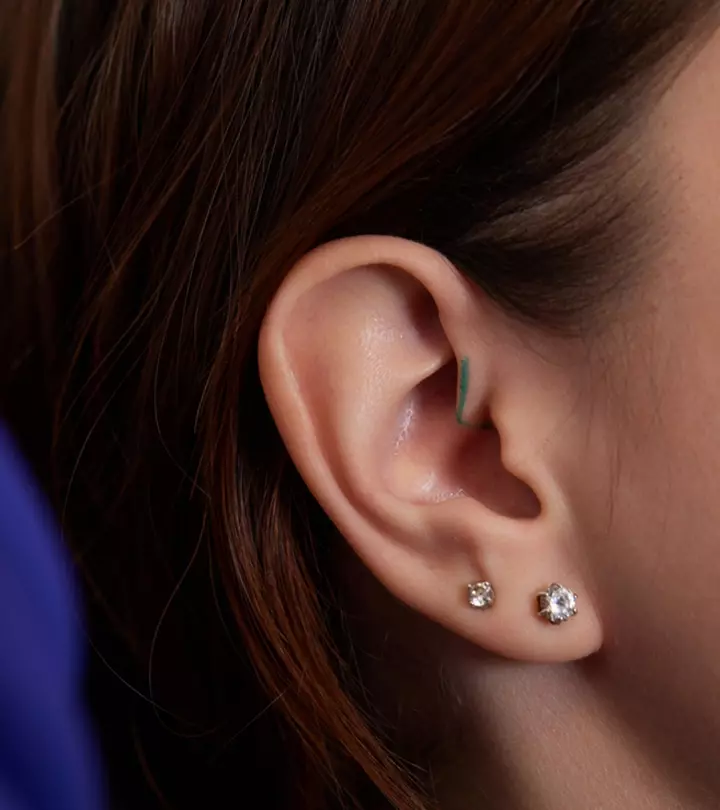

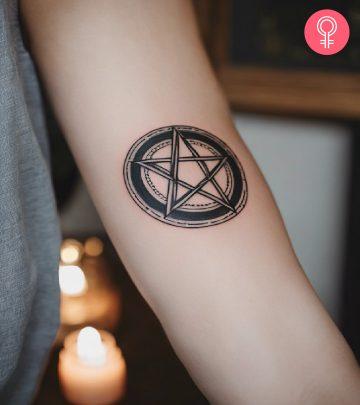
Community Experiences
Join the conversation and become a part of our empowering community! Share your stories, experiences, and insights to connect with other beauty, lifestyle, and health enthusiasts.